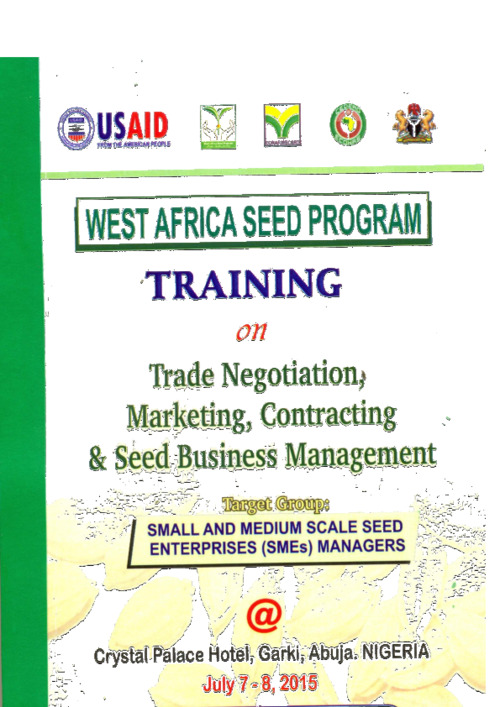Seed Trade Promotion
Abstract
To feed the world population that is increasing from 7.32 billion in 2015 to 9.3 billion people in 2050, agriculture will play a fundamental role by doubling production to meet the world's growing demand for food, feed and fibre, through the incremental output that will come from increases in yields (FAO, 2009). Quality seed is the most important factor for increased crop production. In order to achieve the increase in productivities, high-quality seed is needed for maximum outputs and good returns for farmers. The global seed market was worth approximately $47 billion in 2012, with $9.9 billion of that total being internationally traded. Nigeria's Domestic Seed Market in 2012 accounts for $120 million. To strengthen the seed sector, it is crucial that seed growers and companies adhere to policies that guarantee quality standards and appropriate regulatory features. Thus a number of local, national and international organisations, conventions and treaties deal with the regulation of seed trade, ranging from production to delivery of quality seeds to growers. This is to provide an international regulatory framework that will oversee the interests of breeders, producers and consumers e.g. the ECOWAS seed regulatory policy. This paper aims at providing some insights into international and local institutions for seed trade promotion and advertising, seed import and export procedures, and guide to participation in agric-fairs and exhibitions

